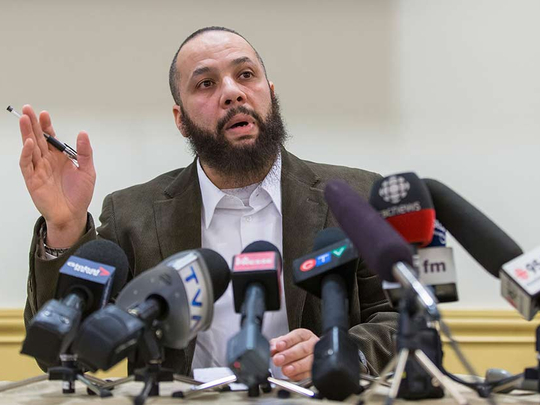
MONTREAL: Concerned about a growing number of Canadian youths travelling overseas to join jihadists, and lacking an immediate alternative, political leaders have asked parents to keep a more watchful eye on their children for signs of extremism.
“These situations are disastrous,” Quebec premier Philippe Couillard said Friday, a day after Canadians learnt that six of their own, aged 18 and 19, including two young women, had left for Syria via Turkey mid-January.
All of them were born in Canada to immigrant parents who said they sought to instill Western values in their offspring. One father even confiscated his son’s passport to try to keep him from taking a flight.
They are not the first to venture abroad to join Daesh. On Wednesday, an Alberta family revealed that their 23-year-old daughter had flown to Syria.
She had taken an online course to study the Quran but instead learnt from her teacher — a suspected Daesh recruiter — how to get to the Daesh-controlled city of Raqqa in Syria to join the extremist group.
Others left months earlier, and some have since died, such as a former University of Ottawa student John Maguire, who was reportedly killed in December near Kobani, and four cousins from Calgary whose deaths devastated their families, which had fled conflict in Somalia to start new lives in Canada.
Pending the passing of new legislation granting sweeping new powers to Canada’s spy agency to thwart terror plots and disrupt suspected extremists’ travel plans, such as preventing them from boarding a plane to join a banned group abroad, Ottawa has called on Canadians to simply remain vigilant against radicalisation of friends and family.
“We all have a duty” to act to prevent them from leaving, public safety minister Steven Blaney said Thursday.
“When an individual wishes to travel for terrorist purposes, the family is aware of it,” he said. “So it is important to report this information to authorities to avoid the situation becoming a criminal one and also to save lives.”
In Quebec City, Blaney’s provincial counterpart, Lise Theriault, offered a toll-free number to call to report suspected cases.
Most of the six youths attended the same high school in a Montreal suburb, which immediately suspended its weekend lease of classrooms to a Muslim association that taught Arabic and religion.
That move was decried Friday by the association’s head, Adil Charkaoui, a Moroccan-born Canadian who years ago successfully challenged his detention without trial under a controversial security measure over suspicions that he was an Al Qaida sleeper agent.
At a press conference in Montreal, he accused the government of using terror scares to bring in legislation that critics argue will trample individuals’ rights.
Ottawa, he said, is “using terrorism and radicalisation to bring in Bill C-51,” which will give the Canadian Security Intelligence Service a new mandate to disrupt terror threats. It is being fast-tracked in the wake of two lone wolf attacks in Canada last year and is expected to be passed by the end of June when Parliament breaks for the summer.












